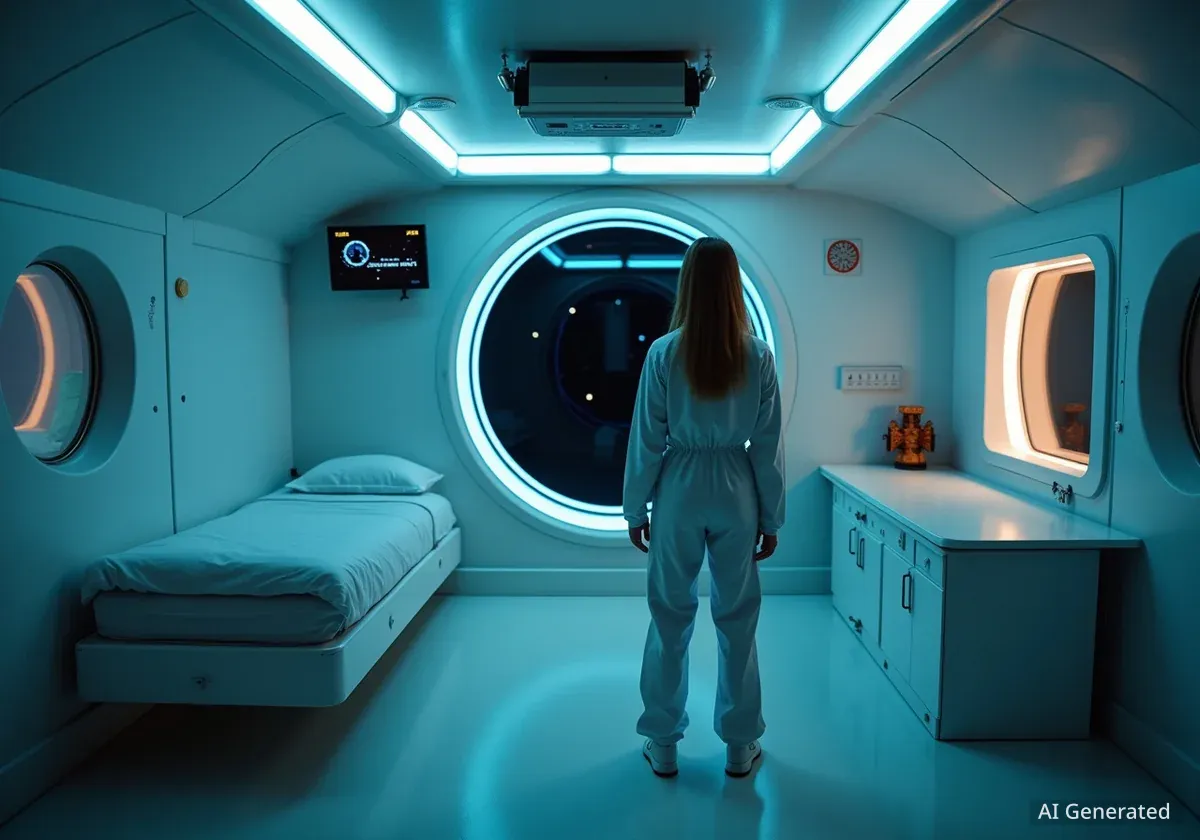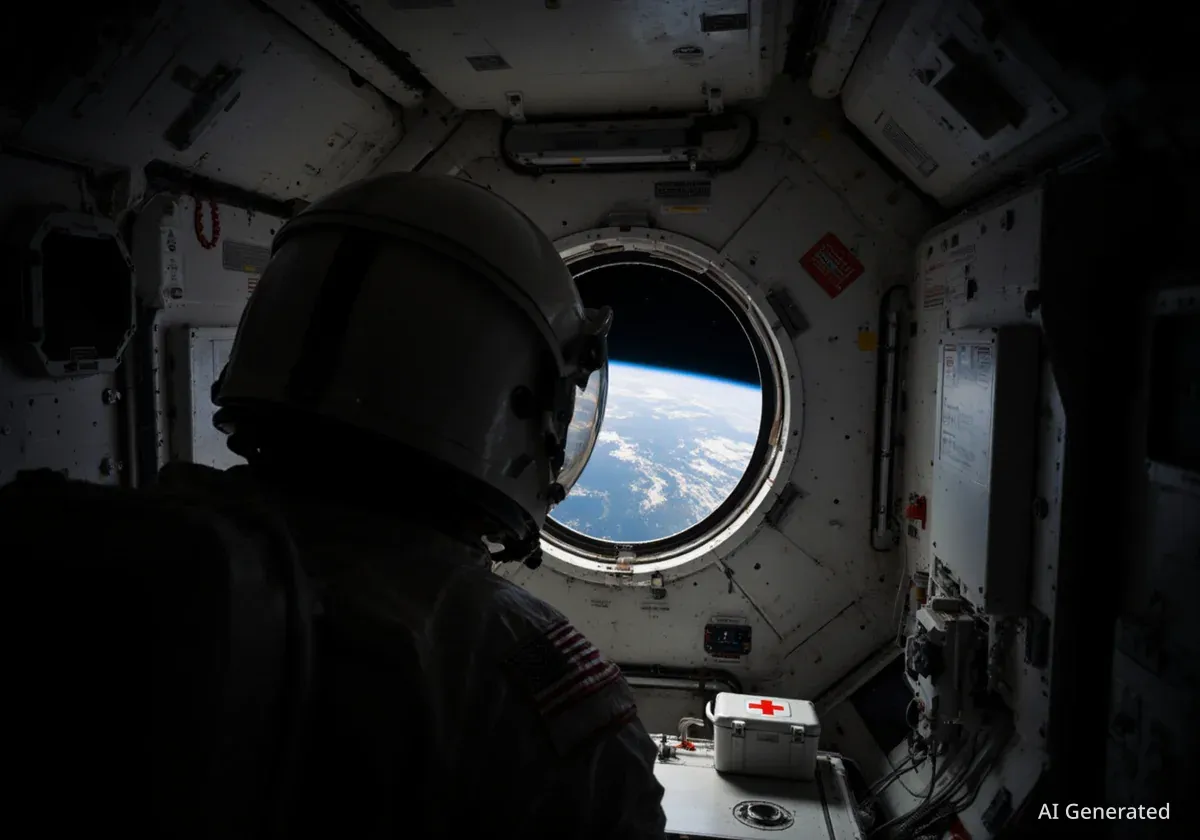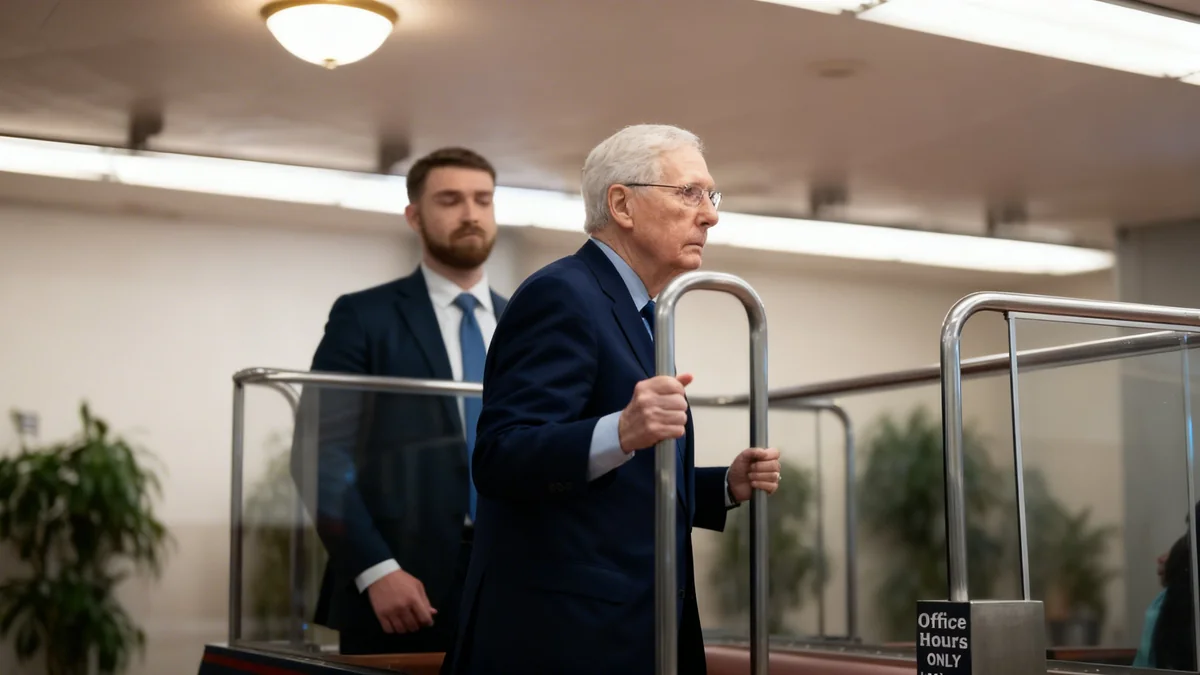Kazakhstan has successfully completed its first long-term crew isolation experiment, a project named SANA-1, at the National Space Center in Astana. The 10-day mission, which concluded on October 10, involved an all-female crew of engineers and researchers living in conditions that simulate a space mission. The study focused on understanding the physiological, cognitive, and emotional responses of the crew in a confined environment.
The research provides critical data for future long-duration spaceflights and is seen as a foundational step toward establishing Kazakhstan's own national astronaut training program. It also highlights the country's efforts to promote gender equality in science and technology, addressing a significant gap in space psychophysiology research, which has historically focused less on all-female crew dynamics.
Key Takeaways
- Kazakhstan's National Space Center finished the SANA-1 project, the nation's first simulated space mission with a long-term isolated crew.
- The 10-day experiment involved an all-female team of engineers and scientists to study adaptation to space-like conditions.
- Preliminary findings show stress and sleep deprivation impacted cognitive performance, but the crew maintained strong cooperation and emotional stability.
- The project supports Kazakhstan's goal of creating a national astronaut training program and increases the participation of women in space science.
The SANA-1 Mission and Its Objectives
The SANA-1 experiment placed a team of female engineers and researchers inside a sealed module for ten days to replicate the isolation of a space mission. The primary goal was to collect data on how the human body and mind adapt to prolonged confinement. Researchers monitored a range of factors, including sleep patterns, stress levels, motivation, and interpersonal dynamics within the team.
This initiative was led by Dr. Alina Gutoreva, an associate professor in Cognitive Science at the Kazakh-British Technical University (KBTU) and head of its Artificial Intelligence Laboratory. According to Gutoreva, the project was a natural extension of her research on neurotechnology for aerospace systems, which she had previously presented at a United Nations forum in Vienna.
A Focus on Understudied Dynamics
Historically, space research has had a limited focus on the psychological and physiological dynamics of all-female crews in isolation. Dr. Gutoreva noted that women represent only about 12.5% of all astronauts worldwide. The SANA-1 project was specifically designed to address this gap, providing valuable insights into team cohesion and resilience in a female-only environment.
During their time in isolation, the crew was not only observed but also conducted their own scientific work. One of their tasks included a planting experiment, where they successfully grew clover sprouts, wheat, and broccoli inside the module. This demonstrates the potential for sustainable food sources on long-term missions.
Key Findings on Crew Performance
Preliminary results from the SANA-1 mission have provided important insights into the challenges of isolated missions. Dr. Gutoreva explained that the crew's cognitive performance was noticeably affected during the middle phase of the experiment, a direct result of accumulated fatigue and stress.
"At first, everyone was enthusiastic, but by the third or fourth day, fatigue and stress increased, which affected test results. It clearly shows how stress and lack of sleep impact cognitive functioning," Dr. Gutoreva stated.
Despite these challenges, the team demonstrated remarkable resilience. The study found that the crew’s emotional states stabilized as the mission progressed. They maintained a high level of cooperation and empathy throughout the ten days. These qualities are considered essential for the success of any long-duration spaceflight.
The Importance of Team Cohesion
The findings underscored the significance of interpersonal skills in a high-stress, confined environment. Dr. Gutoreva emphasized the role of specific traits in the team's success.
"The SANA-1 team showed that empathy, leadership, and emotional support are key resources for crew resilience in isolation," said Dr. Gutoreva. This suggests that future astronaut selection may place even greater emphasis on these psychological attributes.
The selection process for the SANA-1 crew was rigorous. Participants were chosen not just for their scientific and engineering expertise but also for their personality, stress tolerance, and personal motivation. "Motivation was crucial in total isolation. The participants wanted to test themselves and contribute to Kazakhstan’s science and technology," Gutoreva added.
A Step Towards a National Astronaut Program
The SANA-1 project is a strategic component of Kazakhstan's broader ambitions in space exploration. Dr. Gutoreva described the experiment as a significant move toward creating a domestic astronaut training program, which would allow the country to prepare its own citizens for space missions.
"This project is another step toward creating a national astronaut training program in Kazakhstan. Our goal is to bring knowledge from space research back to society – to improve understanding of human cognition, behavior, and scientific practices," she explained.
The successful completion of this mission positions Kazakhstan as a growing contributor to international space science. By conducting its own research, the nation can develop specialized expertise and contribute unique data to the global scientific community. Dr. Gutoreva also expressed her personal ambition to one day participate in a space mission, reflecting a deep-seated passion for space exploration that drives the project.
Expert Commentary and Future Implications
The achievement of the SANA-1 crew was recognized by Tokhtar Aubakirov, Kazakhstan's first cosmonaut and a national hero. He congratulated the team upon their exit from the isolation module and praised the project for its scientific value and for promoting the role of women in space.
Aubakirov commented on the inherent difficulties of such an experiment, stating, "It must have been difficult to stay in a confined space for ten days, seeing the same faces every day, but the team passed this test with honor."
He further highlighted the importance of such research for the future of space travel.
- Scientific Advancement: "These experiments are essential for science and for our future," Aubakirov noted, emphasizing the need for continued investment in space research.
- National Potential: He added that the project is a clear demonstration of Kazakhstan's increasing scientific capabilities.
- Female Resilience: Aubakirov also remarked that "female strength and resilience make them well-suited for the challenges of spaceflight."
The SANA-1 experiment has laid important groundwork. The data collected will be analyzed further to inform the design of future missions and training protocols. As humanity looks toward longer and more distant journeys, including potential missions to Mars, understanding the human element of spaceflight becomes more critical than ever. Projects like SANA-1 are essential for ensuring the safety, well-being, and success of the astronauts who will undertake these historic voyages.





